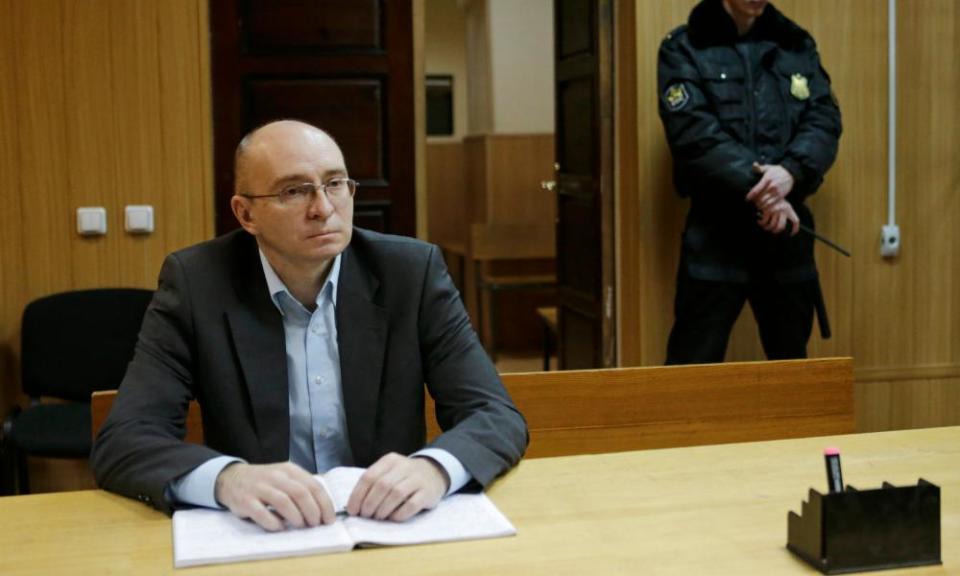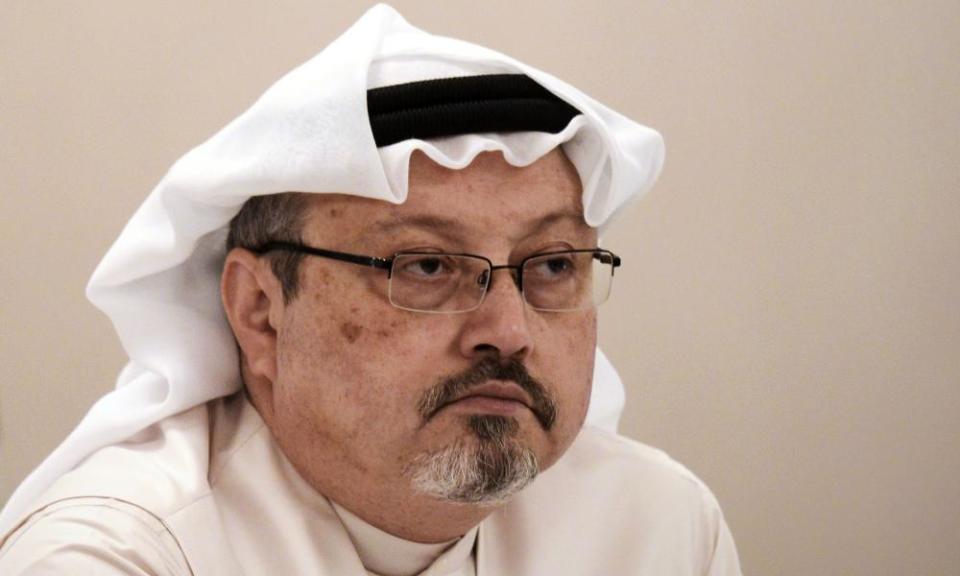'Magnitsky sanctions': who are those being targeted by UK?

The UK foreign secretary, Dominic Raab, has announced sanctions against 49 individuals and organisations accused of human rights abuses from four different countries.
Russia
The 25 Russians targeted on Monday include interior ministry officials, prison doctors and Moscow’s top prosecutor, Alexander Bastrykin, a close ally of Vladimir Putin.
Bastrykin – who went to university with Putin – is the most high-profile figure on a list of 25 Russians. The head of the country’s investigative committee, he is accused of failing to investigate the mistreatment of Sergei Magnitsky, who was beaten to death in 2009 in a Moscow detention centre. Bastrykin acted “intentionally or recklessly”, the Foreign Office alleges.
He and the others on the list will now be subject to UK travel bans and asset freezes. Bastrykin’s inclusion is likely to infuriate the Kremlin and follows his designation by the US in 2017 under a Magnitsky law. The prosecutor has previously been accused of threatening to have a journalist murdered and has presided over a slew of controversial criminal cases.
At the time of his 2008 arrest Magnitsky had been investigating a massive tax fraud. The previous year a group of influential interior ministry officials seized three companies belonging to Hermitage Capital, a UK-based asset management company. They claimed the firms were entitled to a tax refund from the state. About $230m was stolen and laundered through shell companies.

Magnitsky uncovered the scam and was jailed by the same officials whom he exposed. Those sanctioned on Monday include Dmitry Kratov, who was the chief medical officer at Butyrka prison, where Magnitsky was held for some of his time in custody. He was refused medical treatment for pancreatitis and gallstones and died in an isolation cell after being beaten up.
The list includes interior ministry investigators Aleksey Anichin and Oleg Silchenko, who were allegedly complicit in Magnitsky’s abuse. Also targeted are the two top officials from the investigative committee of the ministry’s financial crimes department, Gennady Karlov and Natalya Vonogradova. All are senior career Kremlin bureaucrats.
The government also acted against individuals who allegedly sought to cover up Magnitsky’s death, which took place at Matrosskaya Tishina detention centre. The centre’s doctor, Alexandra Gauss, is named, together with its boss, Fikret Tagiyev, and other senior prison service figures. They are accused of rejecting Magnitsky’s increasingly desperate pleas for medical help.
In 2013 a Moscow court found Magnitsky guilty of tax evasion, even though he was already dead. The sentence in Russia’s first posthumous trial was read out in front of an empty cage. Bill Browder, the chief executive of Hermitage Capital, was convicted in absentia at the same time and sentenced to nine years in jail. Amnesty International condemned the proceedings as “deeply sinister”.
Others sanctioned include Boris Kibis, who was involved in pursuing the posthumous case. Another alleged perpetrator is Viktor Grin, Russia’s deputy general prosecutor. It was Grin who absolved the interior ministry officials involved in the fraud of wrongdoing. Several judges who sent Magnitsky to prison were named on Monday, including Aleksey Krivoruchko and Svetlana Ukhnalyova.
It is not clear what – if any – assets the sanctioned Russians have in the UK. With the exception of Bastrykin, most are mid-ranking government officials. The anti-corruption campaigner Alexei Navalny has claimed Bastrykin has property in the Czech Republic as well as a residence permit, but he is unlikely to be setting foot in Britain any time soon.
Saudi Arabia
Six members of Crown Prince Mohammed bin Salman’s inner sanctum, including his former chief adviser, are among a list of nationals from the kingdom sanctioned by the British government for the gruesome murder and dismemberment of the dissident journalist Jamal Khashoggi.
In a move likely to spark tensions between London and Riyadh, Raab announced that the UK assets of 20 Saudi nationals implicated in the killing could be seized and they would be banned from entering the country.
The sanctions, and the language used to herald them, bring the assassination to the doorstep of the royal court, raising uncomfortable new questions for the powerful heir to the throne, who has repeatedly denied having ordered the hit and has since been accused of offering up functionaries as sacrifices to divert attention.
In particular, six accused members of the hit squad sent to Turkey are listed as having “worked in the office of the crown prince”, being “an adviser to the crown prince”, having “worked with the crown prince’s adviser” or being a “security official for the crown prince”.
Prince Mohammed’s most trusted adviser at the time, Saud al-Qahtani, was listed as the mastermind of the operation, which involved Khashoggi being lured into the Saudi consulate in Istanbul, where the hit squad, headed by the forensic scientist Salah al-Tubaigy, was waiting for him. Tubaigy is accused of dismembering Khashoggi in an upstairs room, then directing a cleanup.
Qahtani was in December cleared by a Saudi court that had sentenced five of the defendants in the case to death. Two other men on the sanctions list, the kingdom’s deputy intelligence chief, Ahmed al-Assiri, and Mohammed al-Otaibi, its consul general in Istanbul, were cleared by a court in Riyadh for “lack of evidence”. The court found the murder was not premeditated, and attempted to characterise the hit squad, which flew to Istanbul in two government planes, as a rogue unit.

A separate trial opened in Istanbul last week, with the same alleged network being tried in absentia.
Qahtani, and many of the other defendants, had earlier been sanctioned by the US under the Magnitsky Act. In the months following Khashoggi’s disappearance, the CIA said it assessed that Prince Mohammed had approved the operation. Donald Trump disputed the assessment, offering cautious support for a leader who had been central to his moves to switch US policy back towards the kingdom, after the Obama administration’s pivot towards Iran.
The UK move comes 21 months after a state-sponsored assassination likely to forever sully the name of the crown prince, who had led a social overhaul of the kingdom that had won plaudits, but at the same time had ruthlessly consolidated his power, jailing rivals and human rights campaigners, and forcing dozens of Saudi Arabia’s business elite to sign over assets to the kingdom.
It is understood the Saudi government made no attempt to lobby London ahead of the announcement, which had been in the pipeline since Britain’s move to leave the EU. UK officials said building a mechanism that would pave the way for individuals, or entities, to be sanctioned for human rights abuses had taken time. “If that existed in late 2018, we would have done it at the same times as the Americans did,” said one official.
Saudi officials declined to respond to the announcement. One adviser said the kingdom “would not be happy”. Another said the UK move had been expected and that bilateral ties would recover after several months. “Britain sells lots of military equipment to Riyadh, and that won’t change because of this,” the adviser said. “But it’s perhaps not the best way to treat your allies.”
Myanmar
Sanctions were imposed on Monday against Min Aung Hlaing, the top military commander of Myanmar who was responsible for the genocide in 2017 against the country’s Rohingya Muslim population. The UK government accused him of “serious human rights violations” in Rakhine state. The US imposed sanctions against him last July.
According to the citation, Burma’s armed forces – the Tatmadaw – took part in “unlawful killings, including through systematic burning of Rohingya houses and buildings”. They were guilty of “massacre, torture, forced labour, systematic rape and other forms of targeted sexual violence, and enforced labour”, the designation said.
Hlaing’s deputy, Soe Win, was also sanctioned. As well as human rights violations, Win was “involved in the financing of the Tatmadaw military operations”, the government said. The brutal attacks by the military and Buddhist mobs led to more than 700,000 Rohingyas fleeing across the border to Bangladesh, where they are currently living in refugee camps.
North Korea
Two government entities in North Korea were designated for their role in running a sprawling network of secret prison camps. The ministries of state security and people’s security were both sanctioned and served with asset freezes. The two bureaus were implicated in widespread serious human rights violations, the Foreign Office said.
These had been carried out by camp guards and North Korean officials against prisoners. The abuses include “murder, torture and enslavement”. The listing was short on detail but did name one senior official in charge of the prison system as Kim Jong-ho. It admitted his role had not been confirmed but said the ministry was in charge of so-called correctional camps.

 Yahoo News
Yahoo News 
